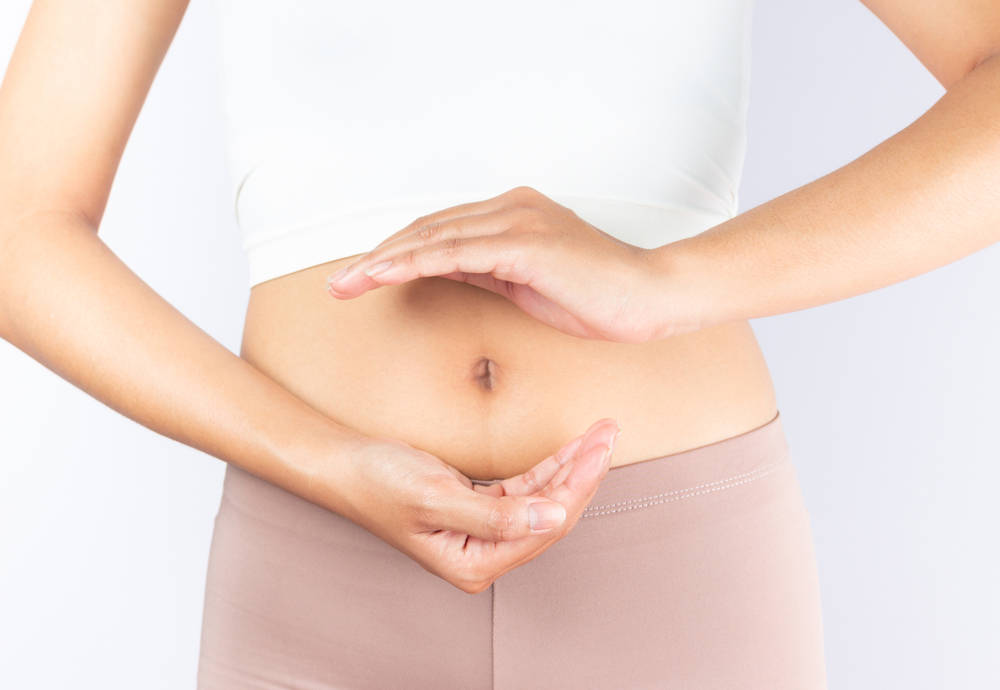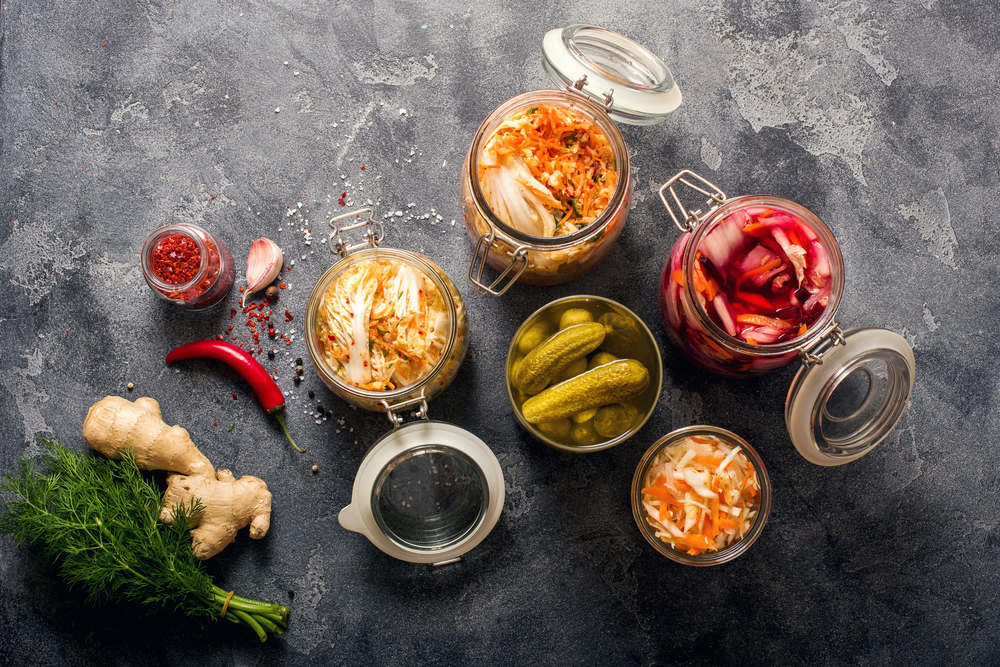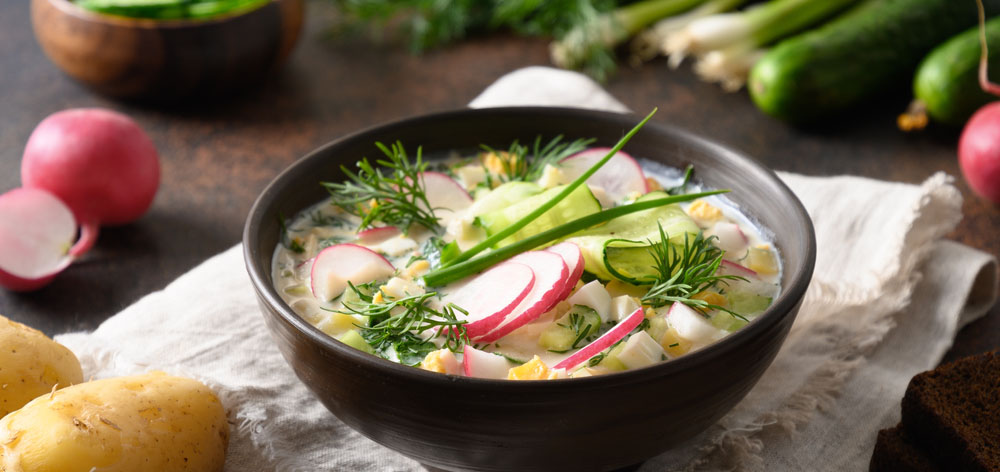The average Brit can go three weeks without eating a single green vegetable and over a month without fruit, while over half admit the only pulses they eat are canned baked beans
A new study has revealed that the average Brit can go as long as three weeks without eating a single green vegetable – and up to one month without fruit.
Worryingly, over half (57 percent) admit that the only beans and pulses they eat are baked beans and so it’s no surprise that half (50 percent) of Brits suffer from digestive issues.
One in twenty suffer from regular heartburn (17 percent), while constipation (15 percent), IBS (15 percent) and diarrhoea (14 percent) are also regular companions for nutrient deficient Brits.
Six in ten (60 percent) say they start the week with the best intentions, buying fruits, veggies and pulses, only to give up on their healthy meal plan and order midweek takeaways.

And many as two thirds (68 percent) of Brits did NOT know that they should be consuming as much as 25g-30g of fibre a day, according to the survey conducted by the UK’s #1 nutrition and food tracking app, MyFitnessPal.
One in four (24 percent) confess that they don’t eat nearly enough fibre, with a third (36 percent) admitting they don’t consume any fermented foods, even though six in ten (60 percent) know that they are good for their gut health.
MyFitnessPal’s Nutritional Expert, Amanda Hamilton comments, “The study reveals just how little the nation knows about their gut health, even though two thirds say they start the week with good intentions.
Eating a diet filled with varied plants (fruits, vegetables, whole grains, legumes, and nuts and seeds) is crucial for good gut health. And good gut health is crucial for our bodies to function well; boosting energy levels and improving focus, encouraging clear skin, strong nails – you name it, the gut contributes to it. Most importantly though, a strong gut is ready to fight illnesses.”
“Fibre plays a massive role in our gut health,” continues Amanda Hamilton. “Ideally, we need between 25 – 30 grams a day and it doesn’t surprise me that so many people aren’t getting enough in their diet because it’s near impossible to guess fibre content by sight alone! That’s why I always recommend my clients use a tracking app like MyFitnessPal which will do the work for you. Even as a nutritionist, I use the app every day for this exact purpose.”
To help improve the nation’s gut health, MyFitnessPal has released a gut health plan which, recommends a varied diet, rich in fruits, vegetables, beans and pulses as well as drinking plenty of water, sleeping well, minimising stress and getting plenty of sleep to support a healthy gut (often referred to as the 2nd brain).
Despite our failed attempts at eating healthily, Brits know that the biggest factors to poor health are ultra-processed food (71 percent), alcohol (70 percent), high sugar intake (67 percent), stress (67 percent) and lack of exercise (56 percent), along with smoking (55 percent) and a lack of sleep (49 percent).
TOP FIVE FOODS PERFECT FOR GOOD GUT HEALTH ACCORDING TO MYFITNESSPAL’S NUTRITIONIST, AMANDA HAMILTON:
- Kefir – most people know that yoghurt contains beneficial live cultures. The next step is to try kefir, which is like drinkable yoghurt with a tangier taste and a broader range of probiotics, including multiple strains of bacteria and beneficial yeast.
- Natto – Kimchi is a fermented probiotic vegetable dish that is now widely available in trendy restaurants. Try experimenting with natto, a fermented soybean product that is not only rich in probiotics but also contains vitamin K, which is beneficial for bone health.
- Seaweed is a gut-healthy gem. It contains prebiotics, specifically polysaccharides like alginate, agar, and carrageenan, dietary fibres that help promote the growth of beneficial bacteria and diversity of the gut microbiome. Seaweed also contains various bioactive compounds with anti-inflammatory and antimicrobial properties. Incorporating a small amount of seaweed into your diet a few times a week rather than daily is recommended. A serving might include a small handful of dried seaweed snacks, a sheet or two of nori, or a tablespoon of dried seaweed flakes added to soups or salads. This amount can provide beneficial fibres and prebiotics without excessive intake of iodine and other minerals.
- Chia seeds are exceptionally high in dietary fibre, particularly soluble fibre, forming a gel-like gut substance. This fibre helps to promote regular bowel movements and prevent constipation by adding bulk to the stool.
- Jerusalem artichokes are nobbly, starchy, edible roots that are rich in prebiotics and contain vitamins and minerals such as potassium, iron, and vitamin C. However, don’t overdo it – they are nicknamed’ fartichoke’ for good reason!
“Garlic, leeks, and onions are also rich sources of inulin, a prebiotic fibre that stimulates the growth of beneficial gut bacteria. Budget-friendly bananas and chickpeas are excellent sources of resistant starch, which supports gut health.

“Don’t forget that cutting out excessive sweet treats can also help with gut health, as sugar can harm gut health by feeding harmful bacteria and causing inflammation.
“Lastly, quality sleep is crucial for maintaining a healthy gut. Lack of sleep can increase inflammation and disrupt the gut-brain connection, leading to digestive issues.”





